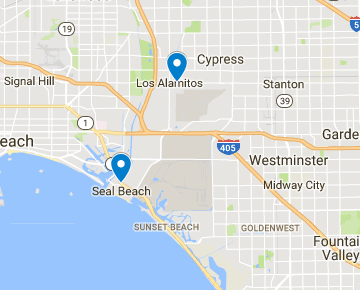How Serious is a Ruptured Achilles Tendon?

That tendon at the back of your foot helps you walk and jump. So when it tears, you’ll feel it!
You may not be aware of your Achilles tendon. But this thick, fibrous band of tissue connecting your heel bone to your calf muscles enables you to walk, climb, run, and jump. Your Achilles tendon supports every step you take. So when it ruptures, it can be pretty serious.
Besides an immediate jolt of pain at the back of your foot, you’ll hear a popping sound when the tendon tears. The heel area will swell, and you’ll be unable to bend the foot when you walk. Standing on your toes will also be challenging. Without a healthy Achilles tendon, you can’t walk, play sports, or do your daily activities. But you can keep strong if you know your risk factors for a rupture and how to prevent it.
Are you at risk for a ruptured Achilles tendon?
Achilles tendon tears are most often seen in athletes, especially those who play sports requiring a lot of jumping, running, and speed changes. Basketball, soccer, field hockey, and tennis fall into that category.
But you don’t have to be a recreational athlete to rupture the Achilles tendon. Accidentally stepping in a hole or tripping over a curb can injure the tendon. Men between the ages of 30 to 40 are also more likely to suffer a torn Achilles tendon. In addition, steroid injection for pain or inflammation in the ankle joint may weaken the tendon, making it more vulnerable to a tear. Carrying excess weight can stress the tendon, too.
Preventing an Achilles tendon rupture
Don’t give up the activities you love if you’re worried about an Achilles tendon tear. Instead, try these four tips to keep your Achilles tendon strong:
Keep your calf muscles strong and flexible. Running and jumping put a lot of force on the calf muscles and tendons. Keep them strong and flexible so that they can withstand that added pressure. Stretching is a great way to do that. Stretch your calf muscles to the point where you feel a slight pull but not pain. Take note not to bounce when you stretch.
Don’t repeat the same exercises. Vary your exercise routine between high-impact activities, such as running and jumping, with low-impact ones. Walking, swimming, and biking are gentler on the Achilles tendon.
Watch where you run. If you run, avoid slippery, uneven, or hard surfaces. Always wear shoes that cushion the heels.
Go slow. Achilles tendon ruptures often happen when someone suddenly decides to increase the duration or distance of their workout. You can continue training, but remember to increase the intensity slowly.
Achilles tendon tears can be treated successfully with both surgical and non-surgical methods. Therapy depends on the severity of the rupture, age, and patient activity level. More active younger people may opt for surgery, while older, less active people may choose conservative treatment.
After either surgery or conservative treatment, you’ll undergo physical therapy to strengthen the calf muscles and the Achilles tendon. A full recovery can be expected between four to six months. And you’ll be back on track once again!
Have trouble with your feet?
Your feet are essential to your life and work, so take care of them! Alamitos-Seal Beach Podiatry Group treats all kinds of foot and ankle injuries, including Achilles tendon tears. Contact us today for a consultation.





